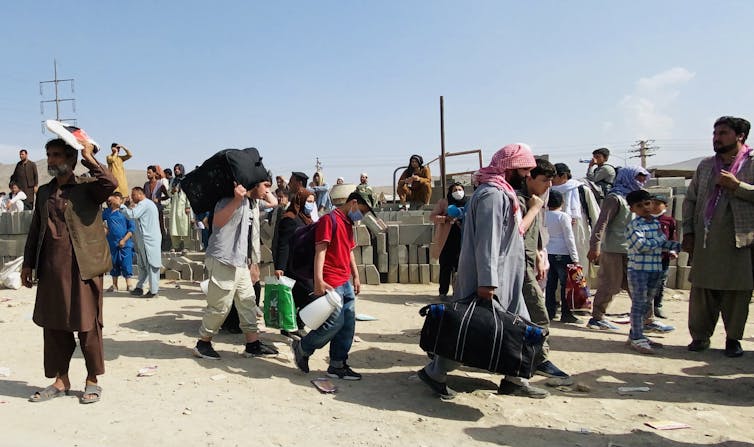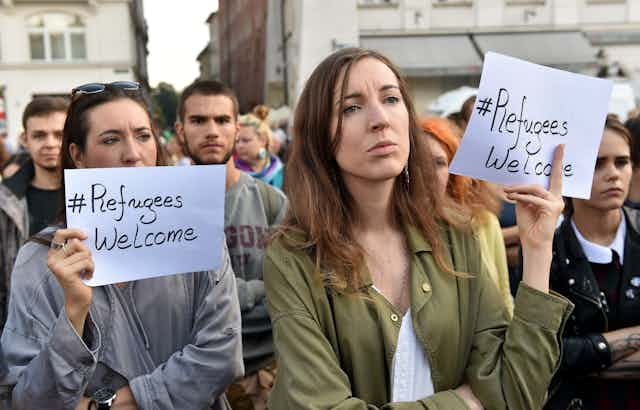As the world braces itself for an influx of people fleeing Afghanistan in the wake of the Taliban coup, it is a timely opportunity to look at the real effect of immigrants and refugees on a country. So often these people are demonised and scapegoated by the media and politicians as a distraction from underlying domestic problems or to make political capital out of voter fears.
According to a recent survey, almost one in three Europeans feels that “refugees are more to blame for crime than other groups”, while those who believe that “refugees will increase the likelihood of terrorism” is almost double that.
The study of immigrants and violence often focuses on the likely opportunities and motives of migrants to commit violence, and the effect on a country’s crime level. But the latest research from my colleague and I took a different approach, looking at the number of refugees welcomed by a country as a measure of national compassion.
Our analysis showed that countries in Europe and North America that treat refugees with compassion and accept them in greater numbers are likely to have lower murder rates. Put simply, compassion towards refugees is not linked to greater risk of violent crime.

What the evidence shows
The study concentrated on the period from 2014 to 2017 when almost 2 million migrants – many from the Middle East – tried to find asylum in EU countries, marking the worst crisis of its kind since the second world war.
We looked at countries that were able to prevent refugees from simply marching in. In these countries, refugee flows reflect political choices and asylum policies rather than the inability to prevent massive influxes at the border. This means our focus was not on countries like Lebanon, Kenya or Turkey, but rather on Europe and North America.
According to UN statistics, Ukraine, the US and Lithuania are in the worst position for murder with more than five murders per 100,000 people per year – and more than six in the case of Ukraine. Belarus, Estonia, Latvia, Albania and Hungary have more than two homicides per 100,000 people per year. All these countries received fewer refugees per population than the average European or North American country.
The three states that received the greatest number of refugees per population were Germany, Malta and Sweden, all of which are among the least violent countries in the west.
Only three countries – Poland, Czech Republic and Slovenia – have low numbers of refugees and low levels of homicides. But there are no examples of countries with generous asylum policies and high levels of violent crime.
Role of compassion
The link revealed by the study between openness to refugees and low levels of violent crime is not related to refugees’ peaceable natures or other characteristics. Rather, I believe it is more about the characteristics of the host country that welcomes them – or not.
Our study worked on the basis that valuing human life motivates the desire to save refugees from the dangers of war. At the same time, it assumes that such appreciation also strengthens moral and motivational obstacles to violence.
I argue that this respect for life implies a willingness to rescue rather than persecute. The fact that the murder rate and the number of refugees are negatively correlated provides evidence that the effect of this ethos on host populations is greater than any potentially destabilising effect of refugee flows.
The political consequences of this finding could be significant as the Afghan crisis grows. Afghan refugees do not constitute as great a danger as the attitude that leads to the rejection or reluctance to take on refugees. If we accept the evidence that showing compassion and openness to refugees does not put people of host countries in danger, some of the deep political divides that characterise debates on asylum seekers could be lessened.

